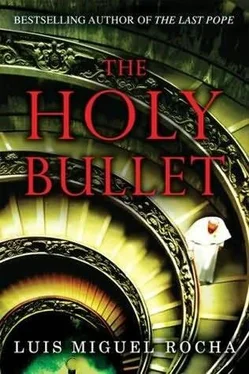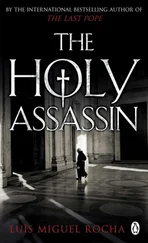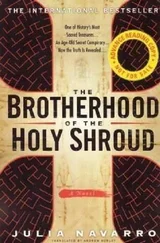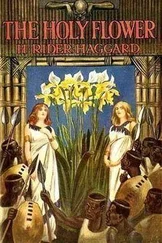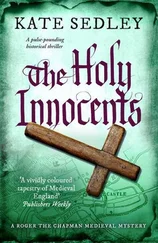While their activities continued with the promise of a quick climax, the door of the stall the couple occupied opened suddenly. Two muffled sounds changed that giddy excitement to sudden silence. Solomon Keys heard the sound of the bodies falling lifeless on the floor.
What the hell? thought a frightened Solomon Keys. Firm, heavy steps approached the door of his stall. Excitement gave way to panic. Solomon Keys stretched out his arms against the sides of the stall and rose quickly from the toilet bowl.
Two shots passed through the door. The first hit the tiles behind him; the second, his chest. Gripped with pain, the American felt like everything was coming to an end. Whatever he had done or deserved in the past, or the simple uncertainty of life, was over today, now. He heard nothing from the other side of the closed door. Neither steps, nor breathing. Only silence. Maybe he could still get out and look for help. With great effort he raised one hand toward the latch on the door. It seemed enormous, like the heavy lock of a huge gate. His strength rapidly abandoned him. His suffering ended quickly with a third shot that passed through the door and struck his head. The end.
Solomon Keys saw his life end in a toilet stall in Amsterdam Centraal station, along with the young lives of the sexual adventurers.
MARCINKUS
February 19, 2006
You can’t administer the Church with Ave Marias.
– PAUL MARCINKUS to the Observer, May 25, 1986
Alot could be said about Paul Casimir Marcinkus, archbishop of the Church of Rome. Over many years, more than a decade, he was the most influential man in the Vatican. How could a man who never became a cardinal become more powerful than the pope himself? Well, that’s another story.
What truly mattered on this day of February 19 was the solitude. The solitude of Paul Marcinkus, after sixteen years away from Rome, exiled in his own land of birth. He’d lived in Rome more than two-thirds of his life, cutting off practically all ties with his own country. Paul Marcinkus belonged to no side. He was a citizen of the world and at the same time estranged from it. For Paul Casimir Marcinkus, only his own world mattered; other people were no more than marionettes to be manipulated at his whim until no longer useful.
Sent back to the diocese of Chicago in 1989, he was obliged to forget all the opulence and power that had surrounded him for so long. The only thing left for him was solitude and, more seriously, the realization that he had no friends, only acquaintances. Friendships based on power crumble away almost instantly when that power is lost. Returning to Chicago, after sixteen years, he realized for the first time he’d always been alone, always an orphan. Even today, having turned eighty-four in the last month, living in Sun City, Arizona, a city of around forty thousand inhabitants, he was alone.
Now he practically never left his bedroom. No more celebrating the Eucharist in the parish of San Clemente in Rome. He spent the day with memories, ever more vivid in his mind, or looking at papers and photographs. The popes Peter, Calvi, and Gelli in the good times, the scoundrels Villot, Casaroli, Poletti, the bastards Luciani and Wojtyla… Emanuela… the beautiful Emanuela. How sad not to have a photograph of Emanuela. How could he? He, an archbishop of the Roman Catholic Church, married to God, Whoever He might be, administrator, for many years, of the accounts bequeathed by Him on earth, he’d managed to triple his investments, some claimed in a risky, harmful way, but that was malicious gossip. A picture of the sweet Emanuela? How could he justify it? How marvelous to have a photo of the beautiful Emanuela. How many years had passed since she… twenty-two? Twenty-three? To think he had become the king of numbers, calculations, financial operations. But nonsense, eighty-four years is a lifetime. The dead make better company than the living.
Two knocks at the door took him out of his dreamy state of thinking about the distant but vivid image of Emanuela… of God, if you will permit the correction. He took his time getting up from the desk and getting to the door. He didn’t hear another knock. Either it was someone very patient or old Marcinkus was now hearing things. But as soon as he opened the door, he was relieved to see someone on the other side.
“Good afternoon, Your Eminence,” a young visitor greeted him. Since the term “young” has a wide range, one should reduce it to between twenty-eight and thirty-three years. The young man was somewhere in that range.
“Who are you?” Marcinkus asked rudely. Congeniality was never his strong suit.
The young man didn’t seem the least impressed with the importance of the man or his lack of manners.
“I’m Brother Herbert. I called at the parish to say I was coming,” the young cleric informed him. Black pants, black shirt and jacket, and a collar identical to what priests wear. Marcinkus deliberated. The young man was carrying a writing case with papers and a bottle.
“No one’s told me anything. Why are you here?” Marcinkus shot back. He hated visits, especially from people he didn’t know.
“I’m coming from Rome. I’m doing my doctorate. Excuse me for bothering you, but my thesis is about the financial world and the Church. And who better than Your Eminence to inform me about that?” the young man continued, submissive and well mannered.
“I can’t help you. Good afternoon,” Marcinkus replied, starting to close the door.
“I’m not going to take much of your time, Your Eminence. I promise you,” the young man hastened to argue. “I brought you a present from Italy.” He raised his hand with the bottle of Brunello di Montalcino, a marvelous red nectar from Tuscany, full-bodied with an intense flavor, which should not be confused with the more common Rosso di Montalcino from the same region.
Marcinkus thought for a few seconds.
“Let’s do the following.” The young man changed strategy, negotiating, the difference between a good thesis and an excellent one, the gateway to a great career. “The bottle stays with you, and I’ll return at a better time. Is that all right?”
Marcinkus looked at the young man awhile longer.
“Come tomorrow after dinner.”
“Thank you, Your Eminence. I’m eternally grateful.”
“I’ll collect on that gratitude.”
“It will be a privilege.” The young man started to turn around. “Thank you, Your Eminence. Until tomorrow.”
“Wait,” Marcinkus ordered. “That stays here.” He took the bottle from the young man’s hand.
“Of course, of course. A thousand apologies. Until tomorrow, Your Eminence.”
“Don’t be late.” And he shut the door, with a slam that almost knocked the plaster from the wall. Marcinkus returned to his memories, to the specters that waited for him from the other side, whatever that was, where the dead live, waiting for time to pass for us. No one has ever returned to tell us what this other side is like, but Marcinkus was going to remember those dead, awaken them, even if only in his own memory. What he didn’t know was that today the dead who had accompanied him for eighty-four years would demand he join them.
“Rest in peace, Your Eminence,” the young cleric said. Paul Marcinkus didn’t hear him.
Time runs out. The archbishop, stretched out on his deathbed, knows that his problems are starting now, when he will be called to account by the God he fears so much and forgot on so many occasions. The true banker of God sees himself before the Omnipotent, showing his books of assets and liabilities, what is owed and what is owned, explaining why he committed frauds, convincing Him of the necessity of diversifying the investments and laundering the money of organized crime. In the fever and anguish of death, Marcinkus sees God like the chairman of a board of directors, incapable of recognizing that everything His servant did over eighty-four years was for the good of the Enterprise.
Читать дальше
